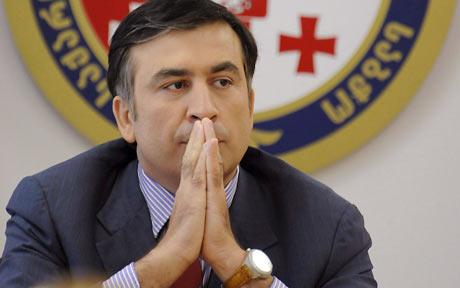
Normal or Special Standards for Georgia’s Elections?
Publication: Eurasia Daily Monitor Volume: 9 Issue: 91
By:

A unique conjunction of external and internal circumstances suggests that Georgia’s upcoming parliamentary elections will be subjected to more (possibly far more) rigorous scrutiny, compared with elections in any of the former Soviet-ruled countries.
International election observers are set to arrive in numbers unprecedented even for larger countries than Georgia and for a duration unprecedented in any elections anywhere. Meanwhile, Georgia’s Constitution is being specially amended to allow the billionaire Bidzina Ivanishvili to lead his own party and himself to run for the top state posts. Some officials in Washington and Brussels are cautioning Georgia preventively that it faces a “litmus test” – unusual language in those two capitals vis-à-vis a partner ahead of its elections.
To single out Georgia for such special rigor seems paradoxical. This is the only thoroughly de-Sovietized country anywhere to the east of the Baltic States; its government is top-ranked on liberal economic reforms, as well as unconditionally Western-oriented – and shapes Georgian public opinion in the same direction. The government’s popularity poll ratings far surpass those of the opposition (see below): the former is seen to work and deliver while the latter is seen to protest and focus mostly on itself, without an alternative program or policies. Russian liberal reformers and, recently, even Russian officials concede that there is much to learn from Georgia’s modernization process. At the same time, Moscow is banking on the upcoming elections to destabilize Georgia (minimal objective) or to change its government (maximal objective).
In that context, the bar of Western assessment seems to be set higher for Georgia than for any country in Europe’s East. The Georgian government’s response is summed up in the phrase: “If the bar is raised higher, we shall jump higher.” Yet the factors behind such special treatment – potentially translating into special standards – are largely external and beyond the Georgian government’s control. They originate in Bush-era rhetoric about Georgia as a “beacon of democracy,” which fed unwarranted expectations from a society barely emerging from pre-modernity. Since then, Georgia has faced two state-capture attempts by made-in-Russia billionaires: Badri Patarkatsishvili in 2007-early 2008, and Ivanishvili at present. Unlike his predecessor, Ivanishvili is internationalizing the issue, seeking to use Washington (and increasingly Brussels) as platforms for his political operations.
Georgia has willingly accepted the United States as de facto referee of Georgian domestic politics, including electoral processes. This situation is also unique to Georgia. It stems in part from the country’s vulnerability and Washington’s say on Georgia’s NATO candidacy, which is the government’s top foreign policy priority. In no other country does the US government play the mentoring role to the extent it does in Georgia. This entails a correspondingly higher level of responsibility for the phraseology chosen, sometimes unreflectively (“transfer-of-power,” “litmus test,” “we will be watching”).
President Mikheil Saakashvili’s government has cemented Georgia-US relations so strongly that Ivanishvili has decided to attack the Georgia-US nexus in Washington, well before starting his own electoral campaign in Georgia itself. With Georgian campaign finance laws limiting Ivanishvili’s political expenditures in the country, he can freely spend on lobbying in Washington. The apparent goal is to make it politically difficult for the US to stand by the Georgian government in the event of post-election instability. Some of Ivanishvili’s allies have hinted at that scenario in the event that the opposition does not win (see “The United States and Political Power in Georgia,” EDM, April 4).
Addressing the OSCE Parliamentary Assembly’s session, held in Batumi on May 12, President Saakashvili noted ongoing “attempts to de-legitimize the elections in advance” and urged that the maximum possible number of election observers arrive in Georgia at the earliest possible time. “We need this already starting today, not just at balloting time. We need monitoring of the media, of funding, of political parties, of the freedom of political activities through the electoral process” (Rustavi-2 TV, May 12).
This would entail record-breaking observer numbers, as well as observing the pre-election campaign for a record-breaking length of time. The parliamentary elections are scheduled for October; but Georgia has already sent invitations for “long-term observation missions” to the OSCE’s Office for Democratic Institutions and Human Rights (ODIHR, the specialized election-observation agency), OSCE’s Parliamentary Assembly, the European Parliament, Council of Europe, NATO Parliamentary Assembly, the Permanent Secretariat of the Community of Democracies (a US-initiated global forum), and a number of parliaments and election-mentoring agencies from Western countries.
The Georgian government hopes for thousands of observers to participate in the long-term monitoring mission, before the short-term observers arrive for the balloting. In normal practice, long-term missions arrive six weeks or two months ahead of the balloting day. Georgia wants them to start arriving four or five months ahead of the October elections.
On May 3, the results of a public opinion survey commissioned by the US International Republican Institute (IRI) were made public. The results show an unnamed presidential candidate of the governing United National Movement (UNM) with 37 percent support to Ivanishvili’s 19 percent (the remainder supporting minor candidates or being undecided) (Rustavi-2 TV, The Messenger, May 3, 4). UNM’s candidate goes unnamed because Saakashvili is constitutionally barred from seeking re-election, and the party has yet to designate a candidate. At this point, therefore, even an unnamed UNM candidate runs far ahead of Ivanishvili. This margin is consistent with that in the recent US National Democratic Institute (NDI)-commissioned poll, which shows 47 percent support for the governing UNM versus 10 percent for Ivanishvili’s Georgian Dream coalition (see EDM, March 29).
The electoral campaign, however, is only starting. The only certainty seems to be that the Georgian government will be expected to meet higher standards than those usually applied to countries in a comparable stage of their transition process.




